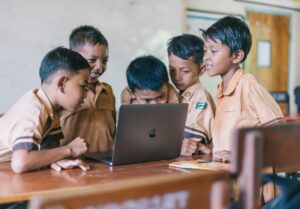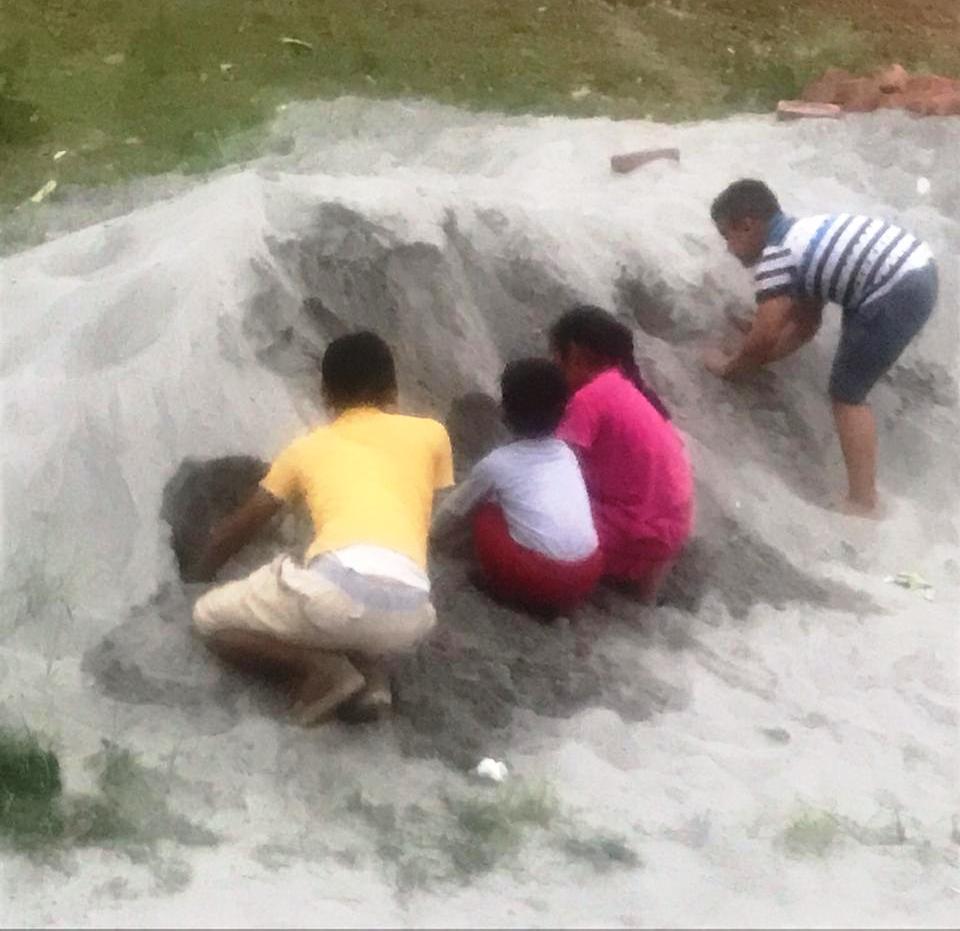To comment or receive more such wisdom, please register on www.gyanalogy.com/login

A Generation Empowered!
The New Education Policy 2020 is a comprehensive, courageous and powerful re-thinking of the Indian education system. The policy has been the first effort by any Government to address School Education as a continuous process right from birth up to 18 years of age. It has kept the learner at the center of the education system, mandating it to be flexible to the needs and requirements of the learner. It has provided adequate opportunity and flexibility for the student to get a quality education from pre-primary to higher education. It focuses on making students well educated and employable. Lastly, it provides adequate opportunity for the child to respect and learn from their socio-cultural ecosystems, thereby enabling them to be more confident citizens in the days to come. I provide my thoughts on the specific points to the NEP as follows:
- Early Childhood Care and Education brought within the Ambit of Ministry of Education
The Government has brought Early Childhood Care Education (ECCE) within the ambit of the Ministry of Education (MoE). This ends decades of division in the Indian Education Ecosystem. Previously, education for children under 6 years of age was within the domain of Ministry of Women and Child Development, but the education for children beyond 6 years of age was under the domain of Ministry of Human Resource Development (MHRD). With this move, the government has rightly renamed the MHRD to MoE. Though the implementation will be done jointly by the MoE, MWDC and Ministry of Health & Family Welfare; the role played by the MoE in order to drive decisions in ECCE has been a landmark achievement for this Government.
- Universalization of Early Childhood Care Education (ECCE) | 100% Gross Enrolment Ratio (GER) in Pre-schools by 2030
This change was much awaited by the education sector and will bring revolutionary changes in the entire education system. Some of the greatest countries that have a large dependence on their human resources (Japan, Singapore, South Korea) had reimagined their Early Childhood Education systems decades ago, in order to improve their human capital.
India has done a good amount of work in primary and secondary, with some efforts in higher education, but the universalization of ECCE will ensure that the children who are enrolled in primary and secondary education systems significantly improve their learning outcomes, in line with their stage of cognitive development.
100% GER in pre-schools by 2030 will bring a humongous task before the government to skill millions of Early Childhood Educators over the next 10 years including Aanganwadi Workers and Pre-School Teachers. Additionally, it will mean greater regulations for Pre-Schools which were, till now, nearly unregulated. The biggest issue lies with the Aanganwadi ecosystem which currently caters to about 85 million children and has nearly negligible resources for providing quality Early Childhood Education.
- Right To Education (RTE) changed from 6 – 14 years to 3 – 18 years | From 10 + 2 to 5+3+3+4
Another welcome step is the 5+3+3+4 rule which has been brought in to make the transition from Pre- School to Formal Schooling longer. Now the child will have 5 years of facilitation, till he (she) is 8 years of age (Class 2), before moving to the next stage of his (her) education. This will give the child more time to experience Play-based education and improve his (her) readiness for formal schooling. Presently a child is moved to Formal Schooling (Class 1) from the age of 6 years (5 years in some states) which gives him (her) a shorter amount time to transition from the non-formal education.
Due to the lack of focus on the readiness of a child till 6 years of age, there is undue pressure on the Primary Education System when a child joined formal schooling at Class 1 and that has resulted in poor learning outcomes of children at school. Now with the Government mandating RTE from 3 years of age, the children will get better education right from the beginning, which will help them be prepared for primary schooling and may result in lower dropouts and better learning outcomes in the later years.
- Mother tongue education till class 5 is a boon to improvement of Learning outcomes in children
According to estimates, about 10% of India speaks English. An entire education system based on English was a major drag on the Indian education system. Given that most of the Indian population speaks its mother tongue at home, early education must take place in the mother tongue, so that a child can understand the concepts in the formative stages of his (her) life. The enforcement of the mother tongue approach will result in improvement in the learning outcomes of a child and will also enable higher personal, social and emotional morale of the child as they will have greater respect for their mother tongue. This will also result in the possibility of improving their understanding of their culture, as most of one’s culture is best explained in the mother tongue and not in English.
- Multiple Entry Exits | Credit Transfer and Academic Bank of Credits
This is the single largest change the government has brought about in the Higher Education system. This will result in the student building the flexibility of gathering credits, based on their convenience (of time) and their preference of subjects, rather than on the fixed syllabus within the 3 to 5 years prescribed by the institutions today.
Also, initially, a student’s efforts were only recognized when the entire course was completed along with the assessments. However, under the new regulations, a student will be given credit for whatever they have learnt helping them accumulate credits for their certificate, diploma or degree.
- National Professional Standards for Teachers
These standards will define the roles of teachers and will result in the development of a holistic program for building the capacity of teachers in the days to come. There are some organisations which are working in this field but a national standard document will also result in courses being designed in line with the Standards prescribed by the government.
Teachers are critical to the process of delivering quality Education. The focus on teacher education needs to be revamped with some emphasis on the role of private players in training teachers. The modified face of B.Ed, as proposed by the government may not be enough to cater to the huge and crippling issues faced by the education fraternity.
How TITLI’s relevance is becoming prominent with NEP?
Teachers are the backbone of delivering quality education to children. NEP has mandated the achievement of Gross Enrolment Ratio (GER) of 100% in Early Childhood Education by 2030. This will create an unprecedented requirement of Early Childhood Development Professionals over the next decade. TITLI has been building the capacity of Early Childhood Educators and Caregivers since inception. This policy is one of the strongest validations and encouragement to our work. It will enable us to expand our reach to a much larger audience across multiple skillsets (Entrepreneurs, Educators, Administrators, Caregivers, Counsellors, Curriculum Developers, Trainers) within the Early Childhood Education domain.
NEP empowers all the stakeholders of TITLI. The current and prospective offerings of TITLI will be an important contributor to the effective implementation of New Education Policy 2020.
 Pranjal Modi is a passionate Entrepreneur, who believes in creating value by doing good. He is a Chartered Accountant and a Charter Holder from the CFA Institute, Virginia, US. He moved onto working with young children and became an Early Childhood Educator, when he Founded TITLI Early Childhood Teacher Training Institute at Mumbai, India. He is determined to make positive contributions to the lives of young ones and thereby benefit society as a whole. Before TITLI, Pranjal spent a year travelling to more than 50 villages, towns and cities in India, interacting with students, teachers and parents, to understand the problems underlying at the core of the Indian Education Ecosystem. His travel was preceded by half a decade of work in the field of tax and regulatory structuring, currency research and analysis coupled with devising hedging strategies for clients with exposures exceeding US$ 1 billion.
Pranjal Modi is a passionate Entrepreneur, who believes in creating value by doing good. He is a Chartered Accountant and a Charter Holder from the CFA Institute, Virginia, US. He moved onto working with young children and became an Early Childhood Educator, when he Founded TITLI Early Childhood Teacher Training Institute at Mumbai, India. He is determined to make positive contributions to the lives of young ones and thereby benefit society as a whole. Before TITLI, Pranjal spent a year travelling to more than 50 villages, towns and cities in India, interacting with students, teachers and parents, to understand the problems underlying at the core of the Indian Education Ecosystem. His travel was preceded by half a decade of work in the field of tax and regulatory structuring, currency research and analysis coupled with devising hedging strategies for clients with exposures exceeding US$ 1 billion.
The views, thoughts, and opinions expressed in the article belong solely to the author.
To comment or receive more such wisdom, please register on www.gyanalogy.com/login



